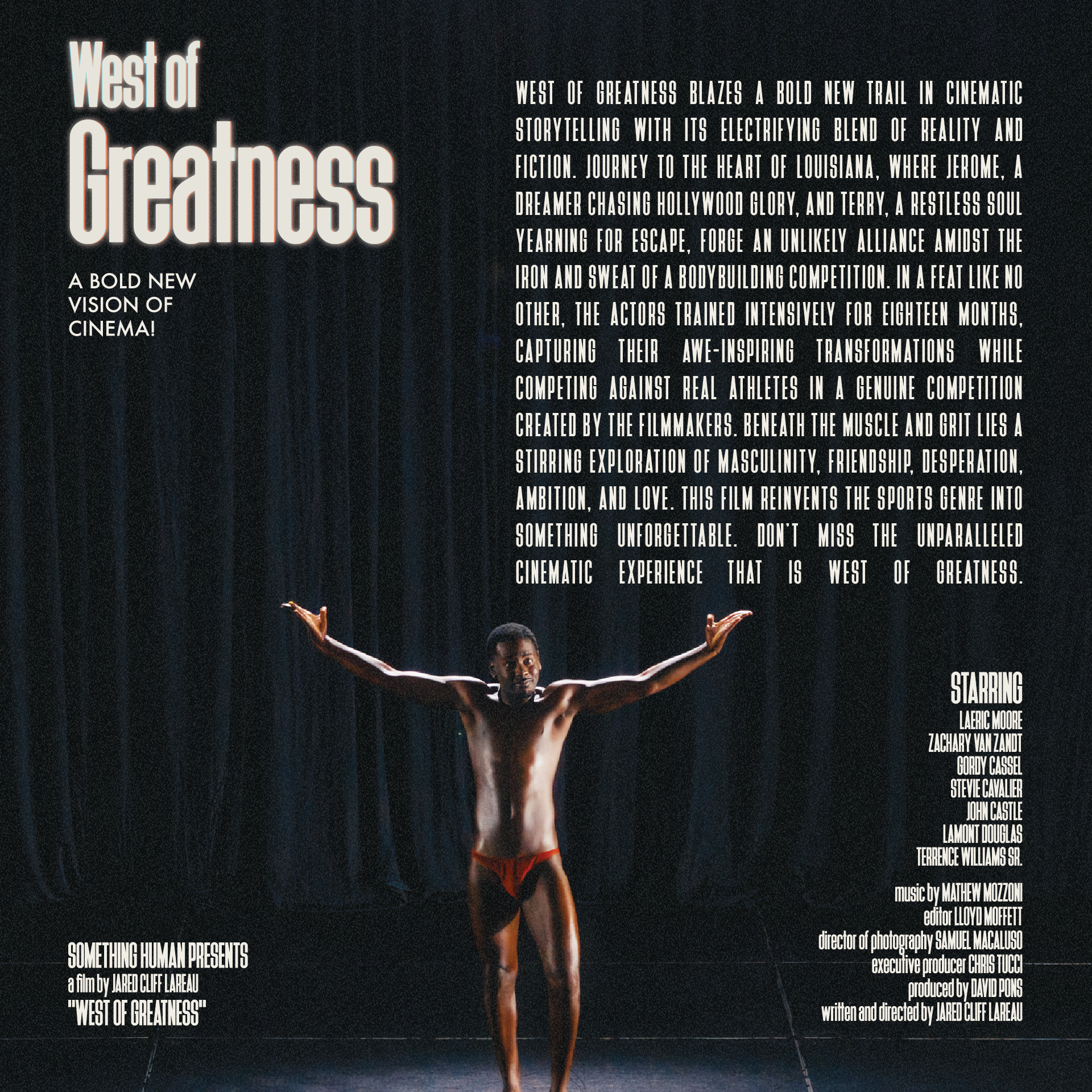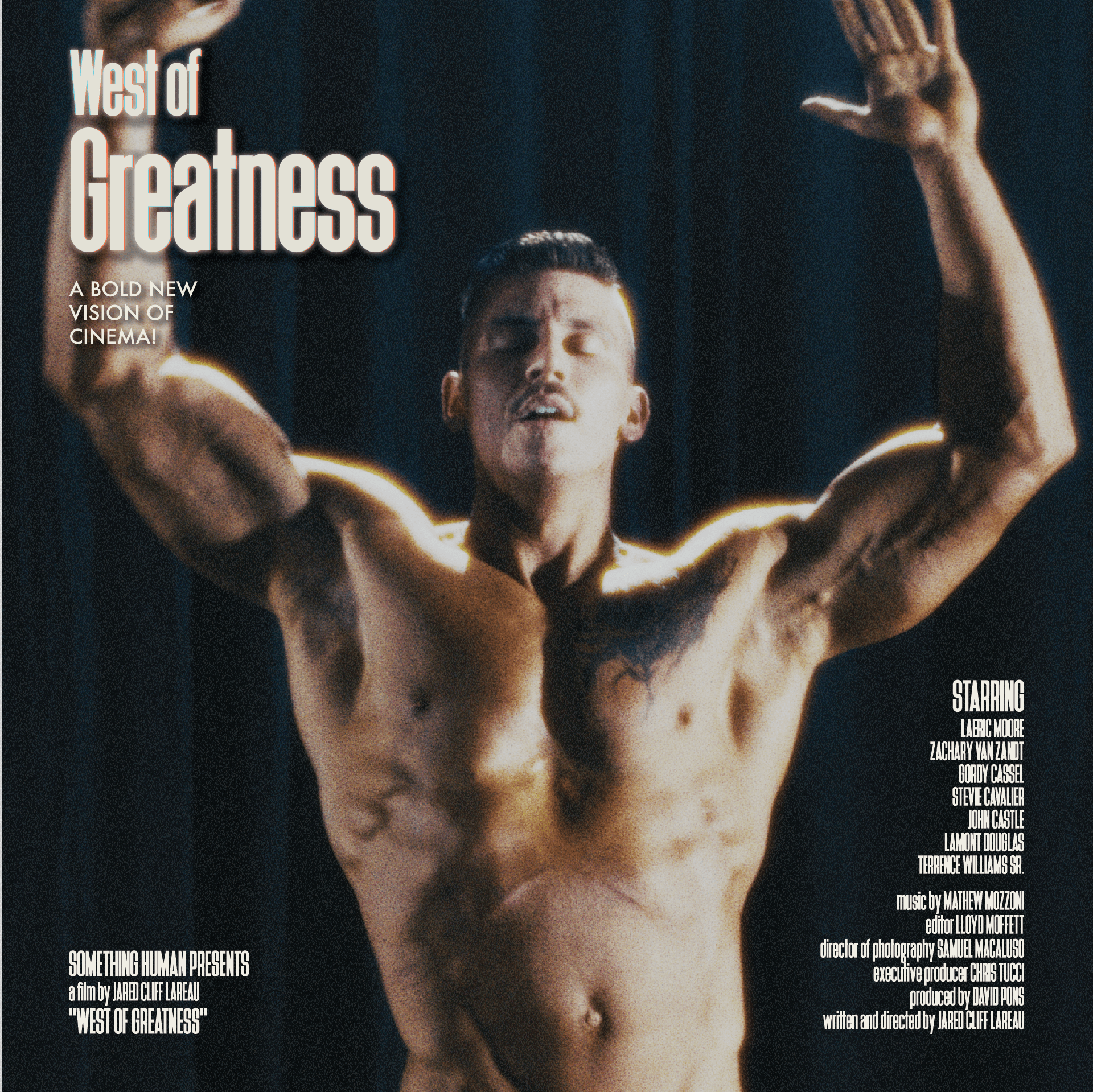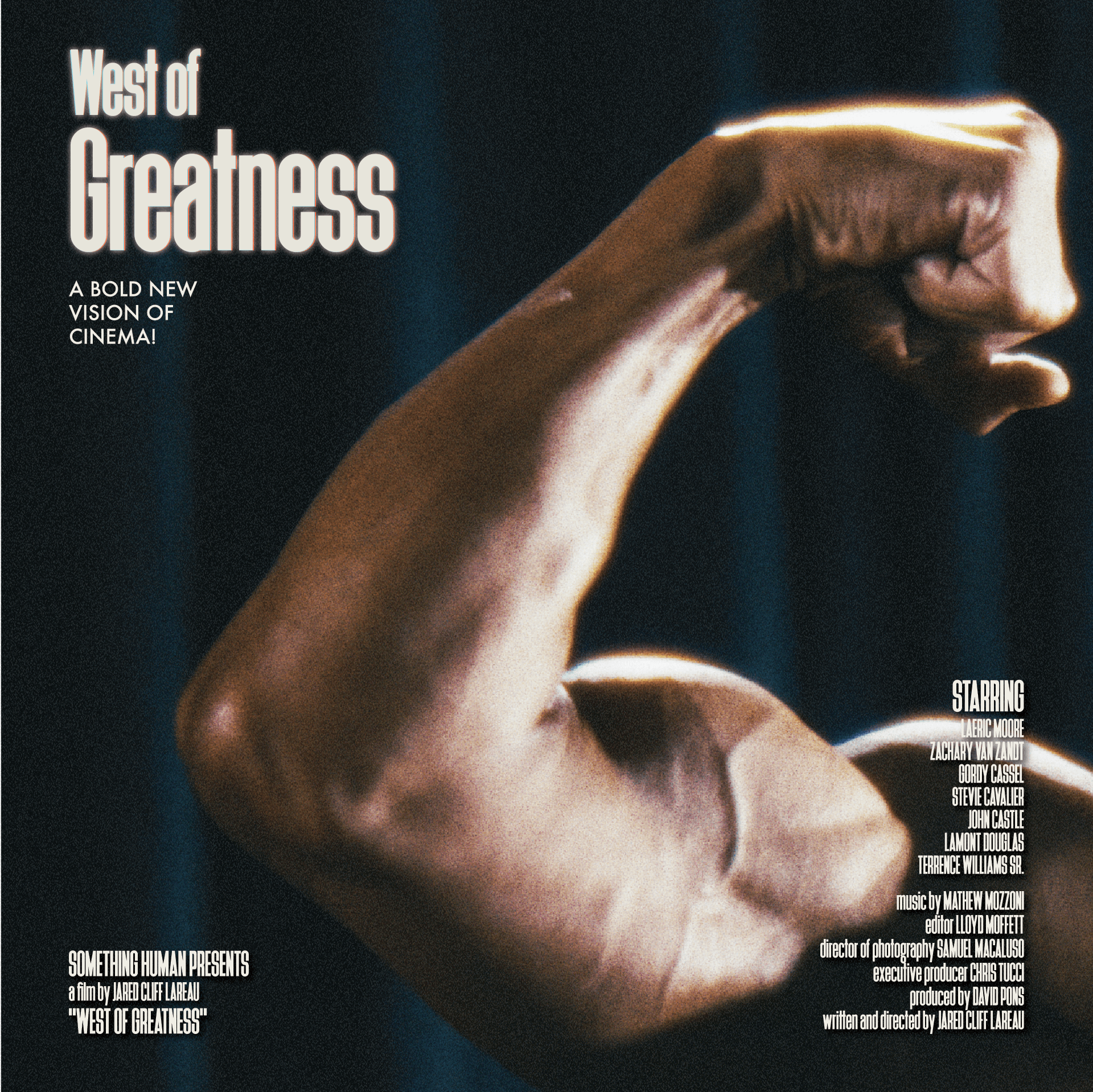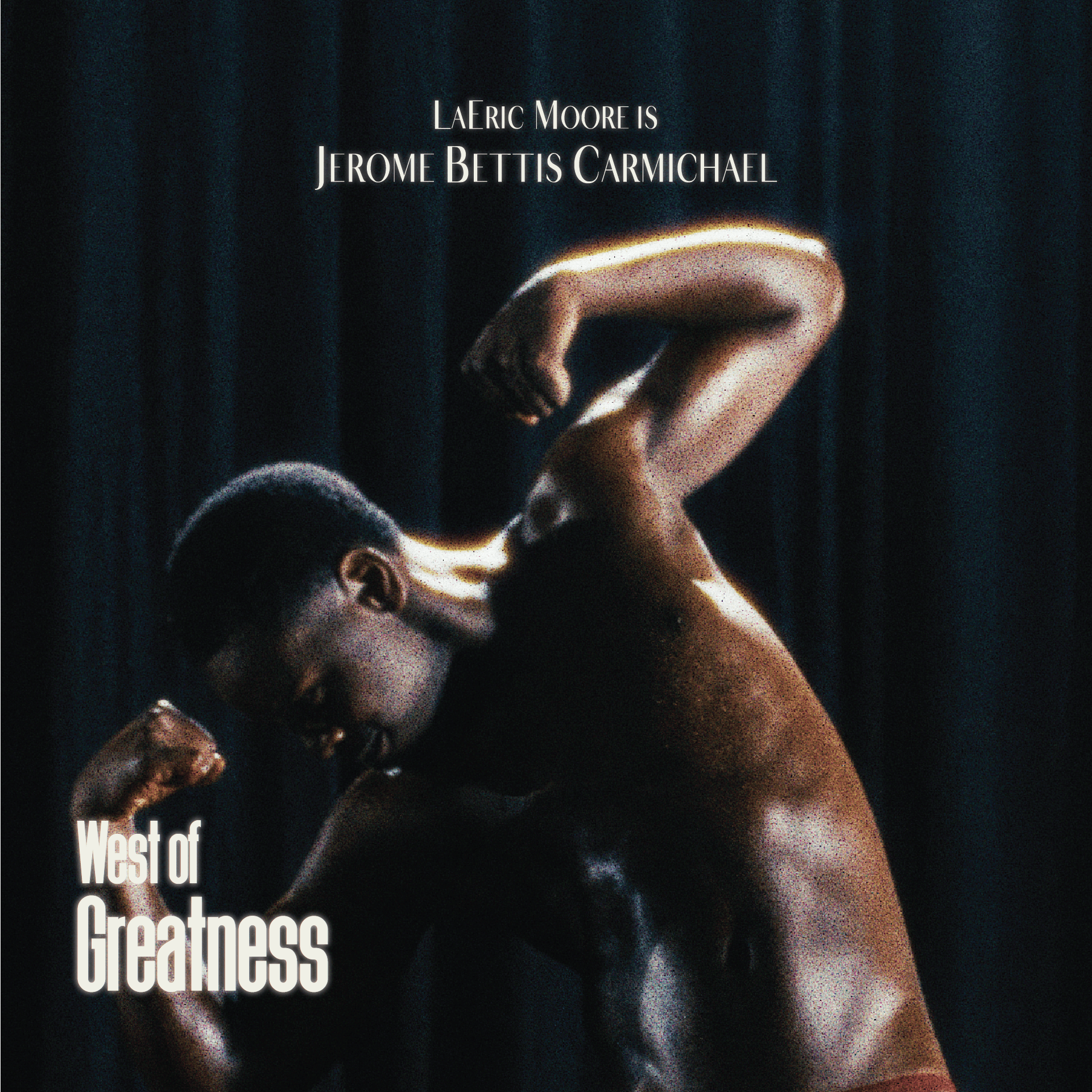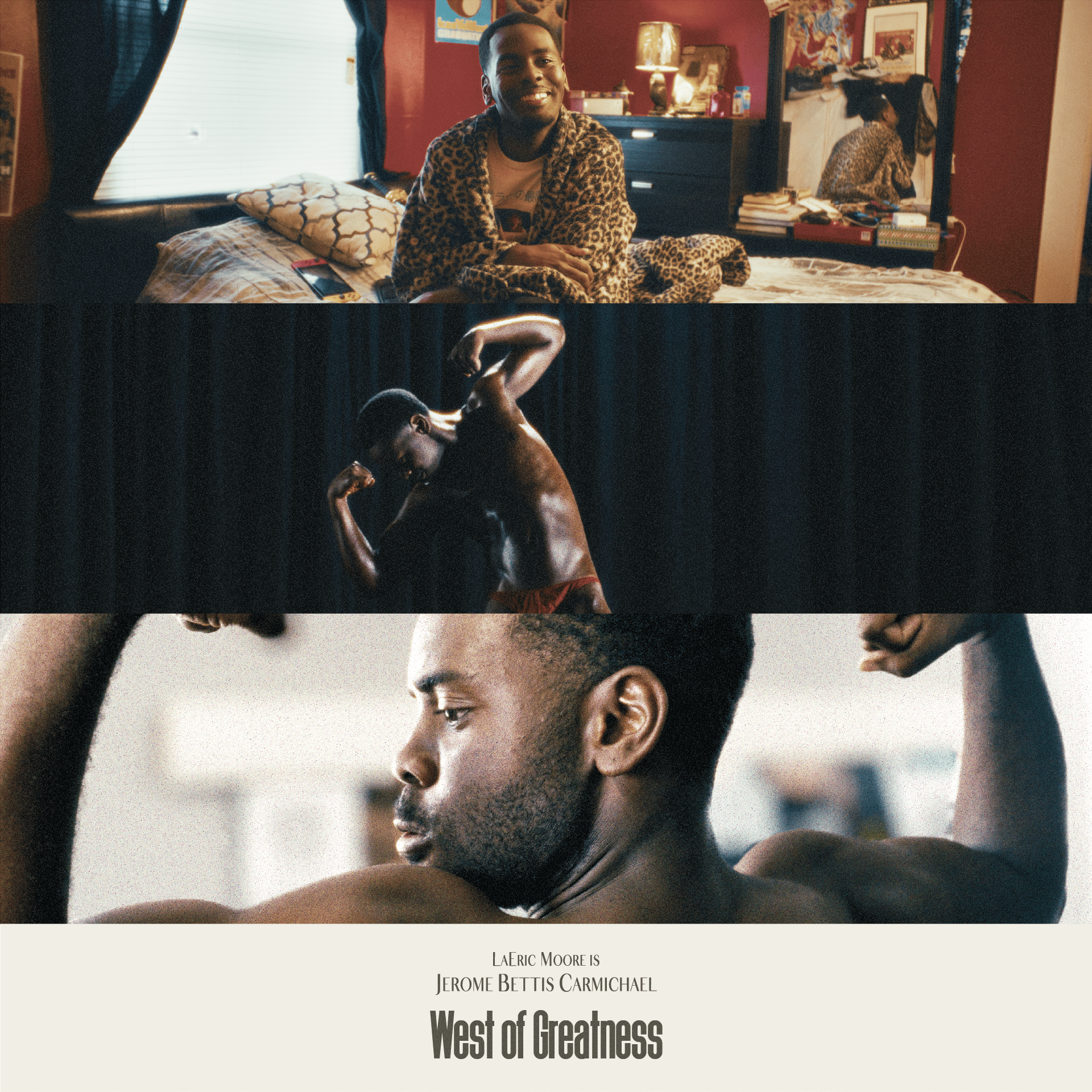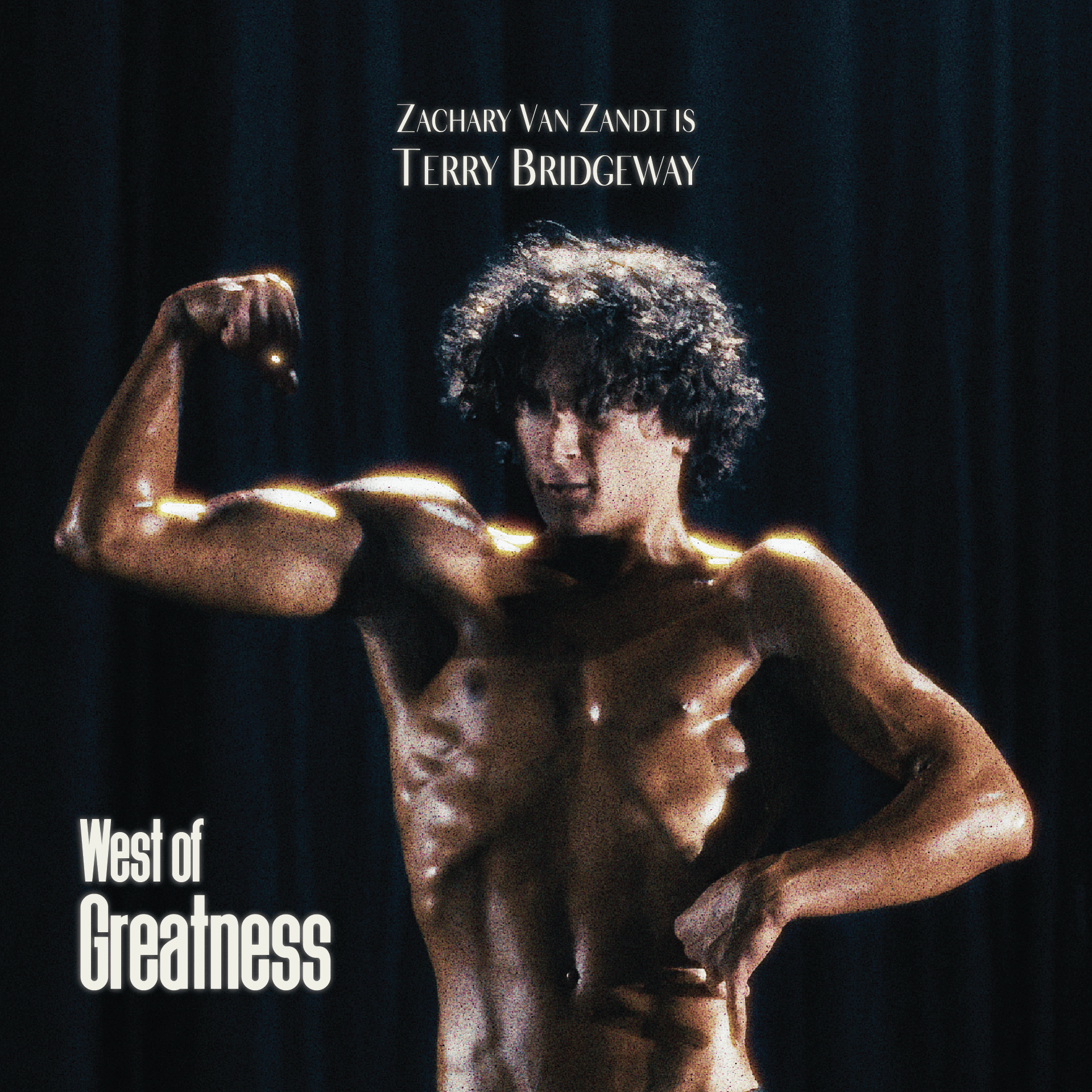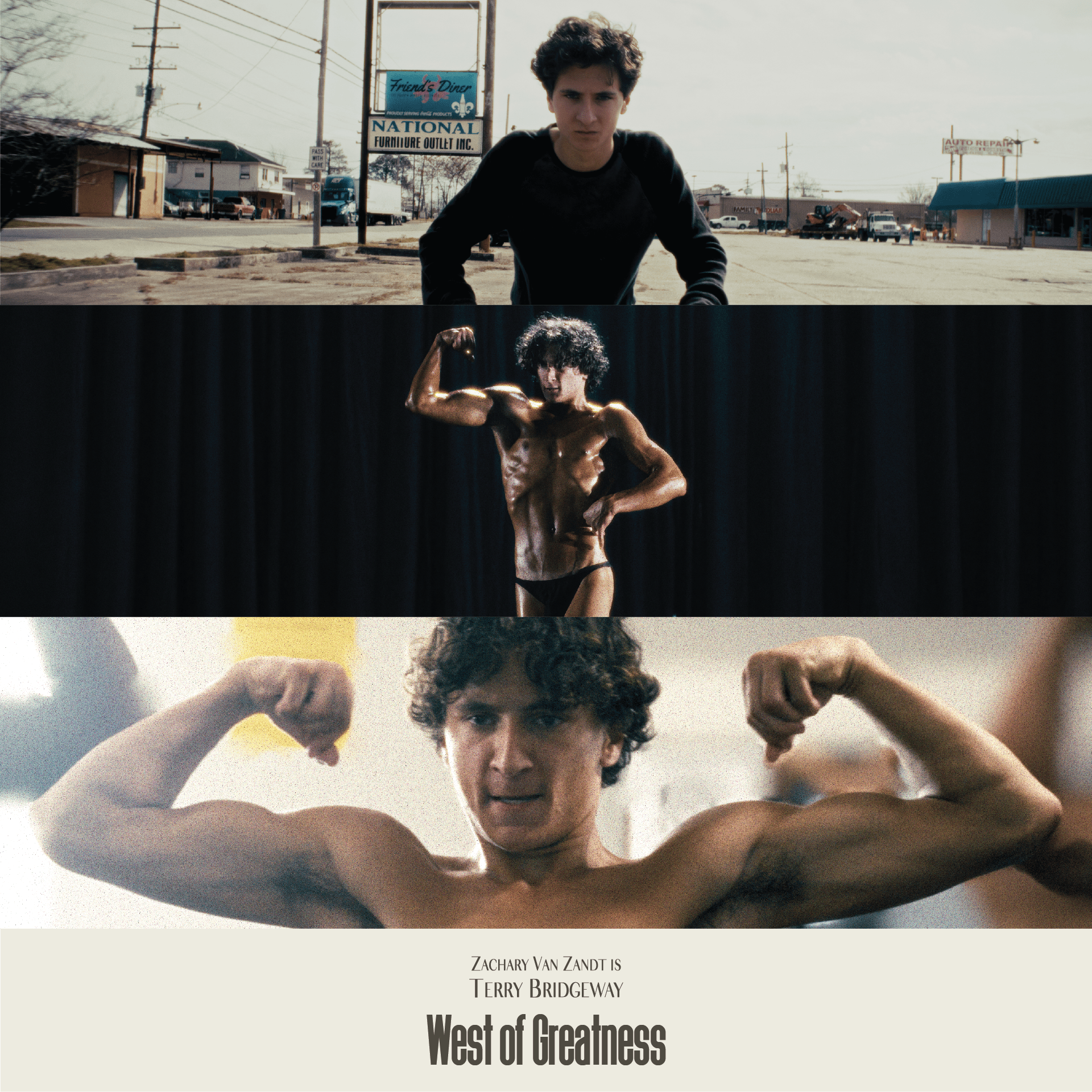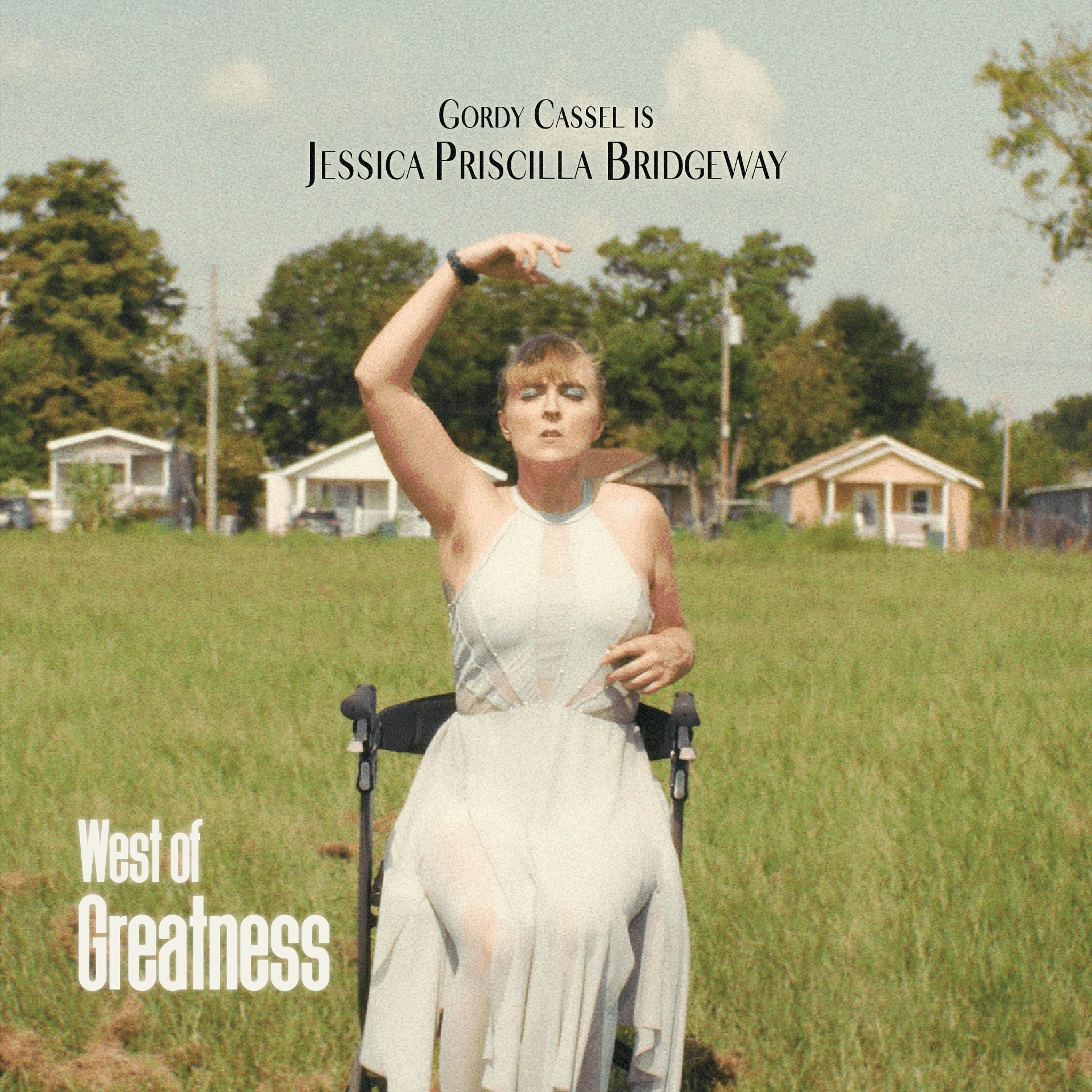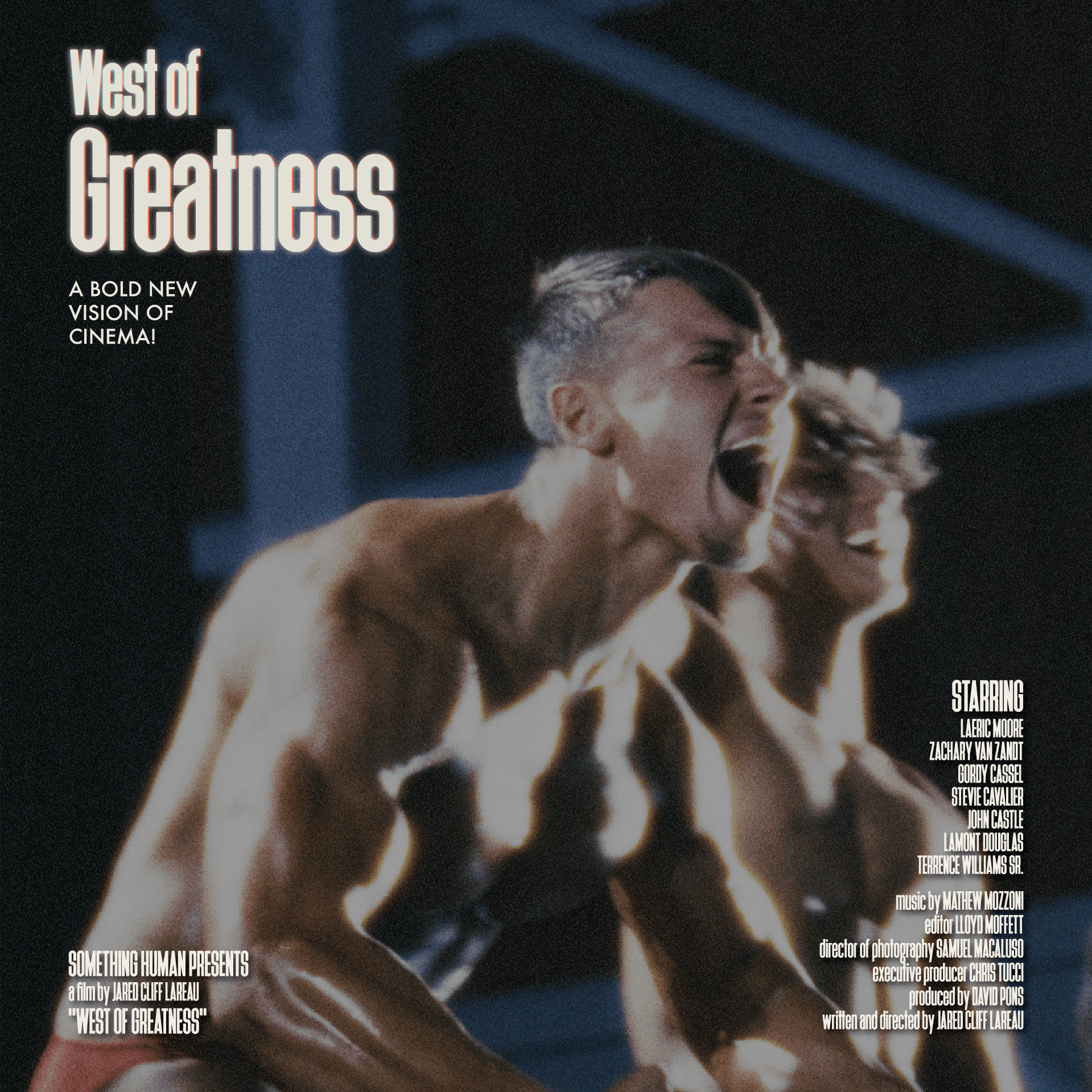In a fading Louisiana town, Jerome dreams of Hollywood while Terry seeks escape from a troubled home. United by desperation, they train for a high-stakes bodybuilding competition that becomes their shot at something more. Filmed over 18 months, WEST OF GREATNESS blazes a bold new trail in cinematic storytelling, blending raw documentary with scripted drama. It's a haunting, human story of ambition, survival, and the quiet bond that forms when there's nothing left to lose.
Written & Directed by
Jared Cliff LaReau
Starring
LaEric Moore
Zachary Van Zandt
Gordy Cassel
Stevie Cavalier
John Castle
Lamont Douglas
Terrence Williams Sr,
-
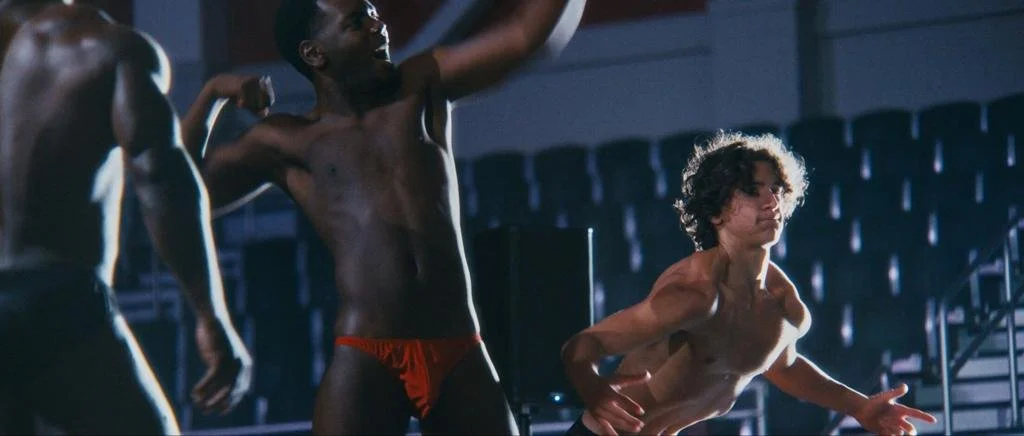
"LaReau’s feature debut, 'West of Greatness,' will stay with you, both for its real characters and for the actors who drive home the lived experience of those who fight to overcome hardships and struggle with their need to change and grow."
NOLA.COM
-

“ ‘West of Greatness’ is a truly heartwarming, devastating, and quietly poignant portrayal of the blind madness of hope in the face of illogical odds.”
NEW ORLEANS MAGAZINE
-

“A raw, atmospheric portrait of ambition, friendship, and the fragile power of yearning—for connection, control, and something greater than themselves.”
WGNO
-
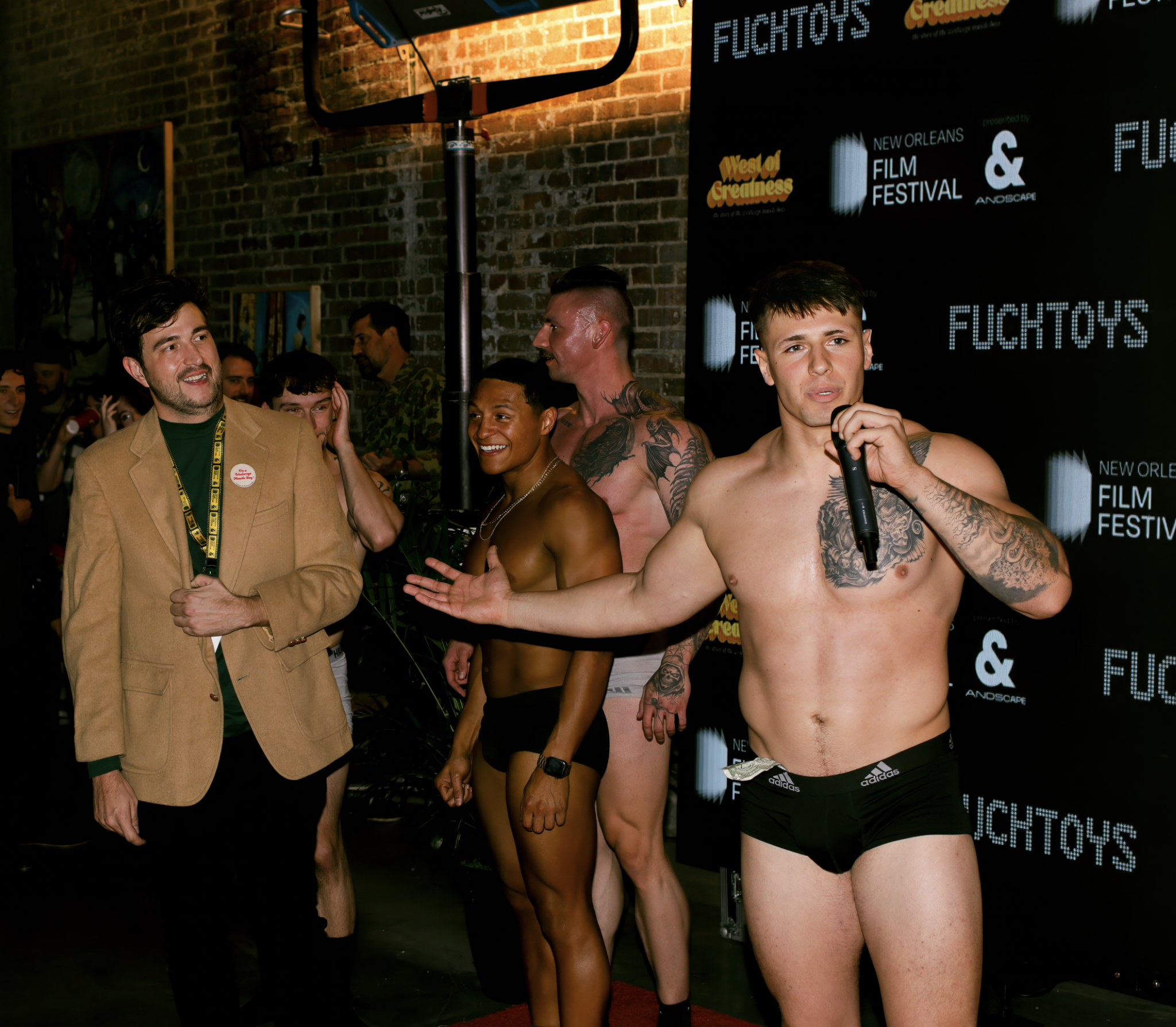
"Enter West of Greatness, a mighty film in perfect form. "
ANTIGRAVITY
-
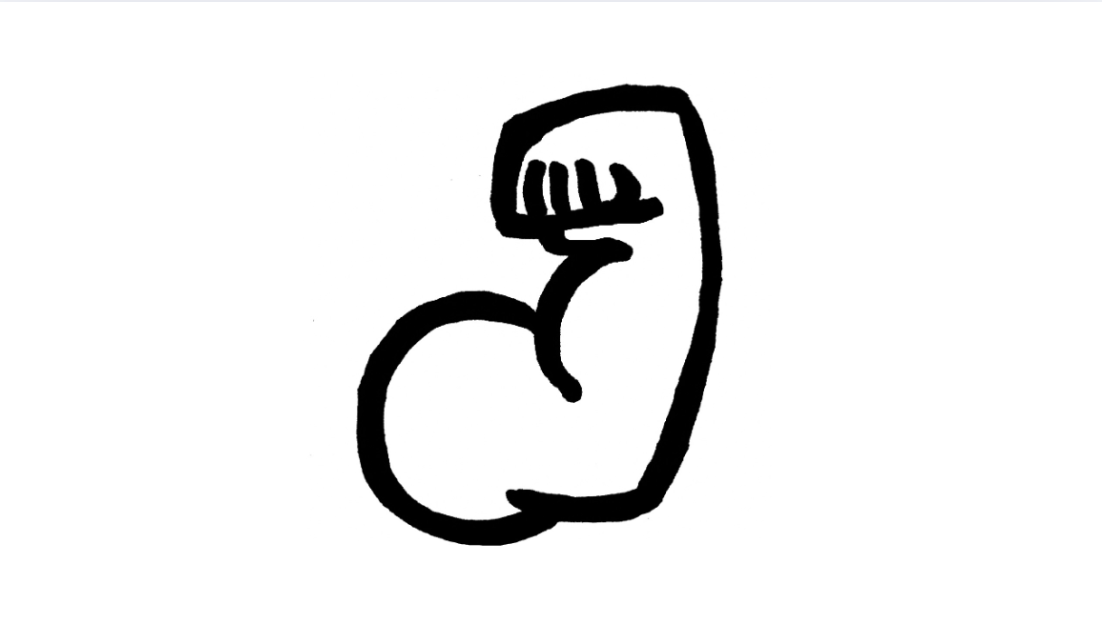
"West of Greatness is endearing enough as a hopeless underdog sports story, but its real achievement is in its verisimilitude."
SWAMPFLIX
-

" 'West of Greatness' blends fact with fiction to explore purpose, bodybuilding."
KUAF
-
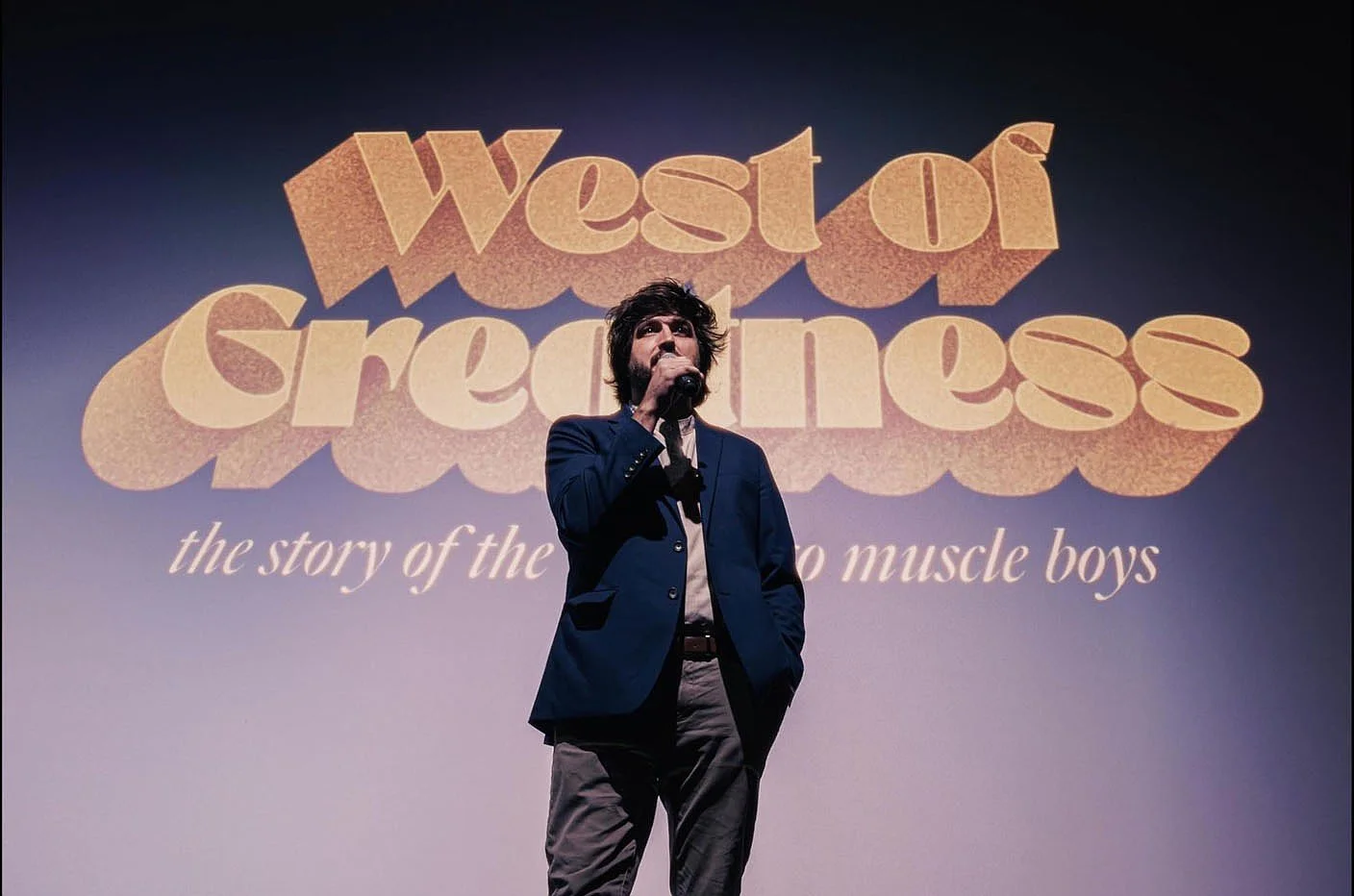
"West of Greatness is about desperation, yes — but also dignity and the quiet strength of those who push forward even when the world around them has already counted them out."
NORTHWEST ARKANSAS DEMOCRAT GAZETTE
-

Geena Davis-Led Bentonville Film Festival Announces 2025 Lineup, Honors For Lucy Liu, Al Roker
DEADLINE
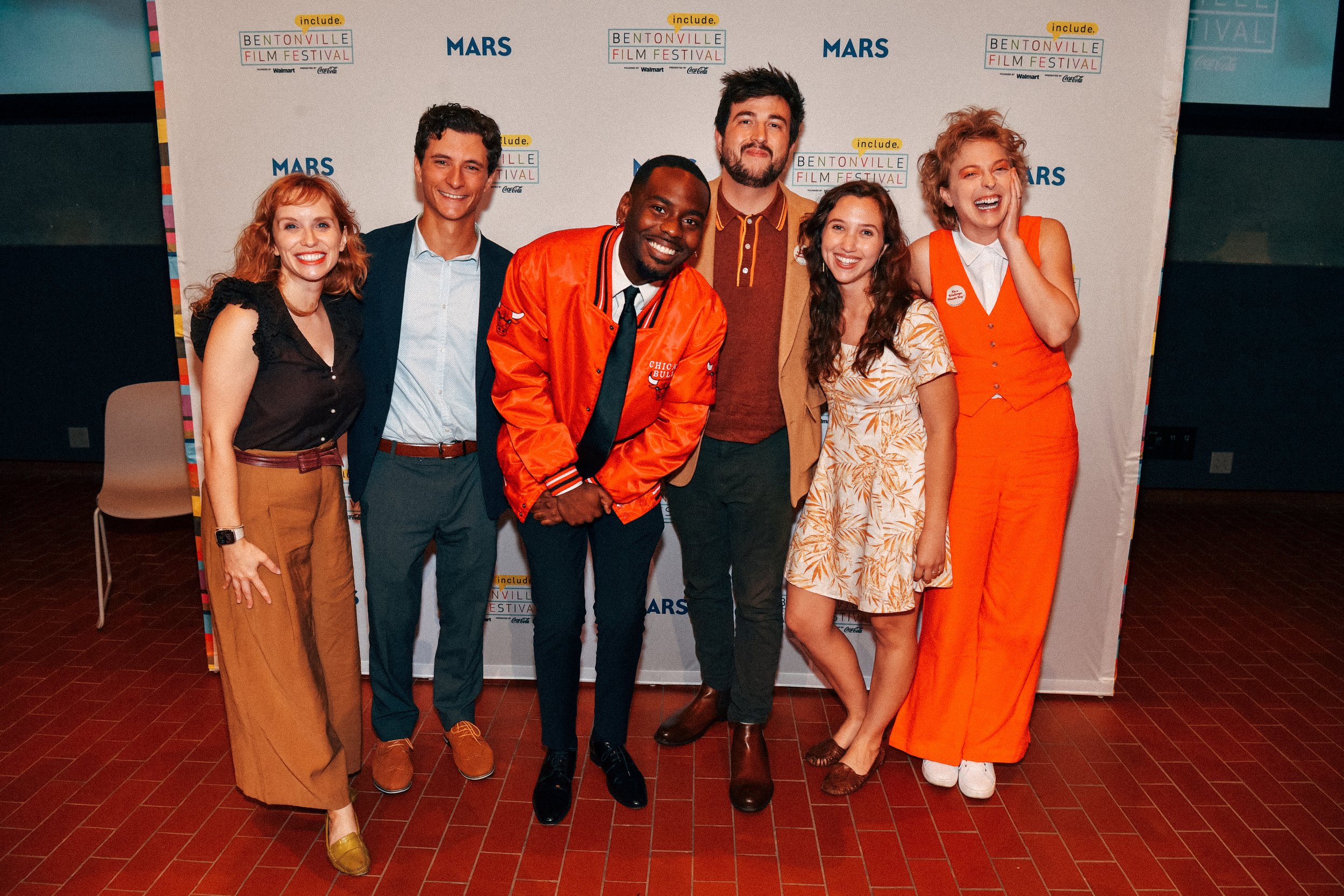





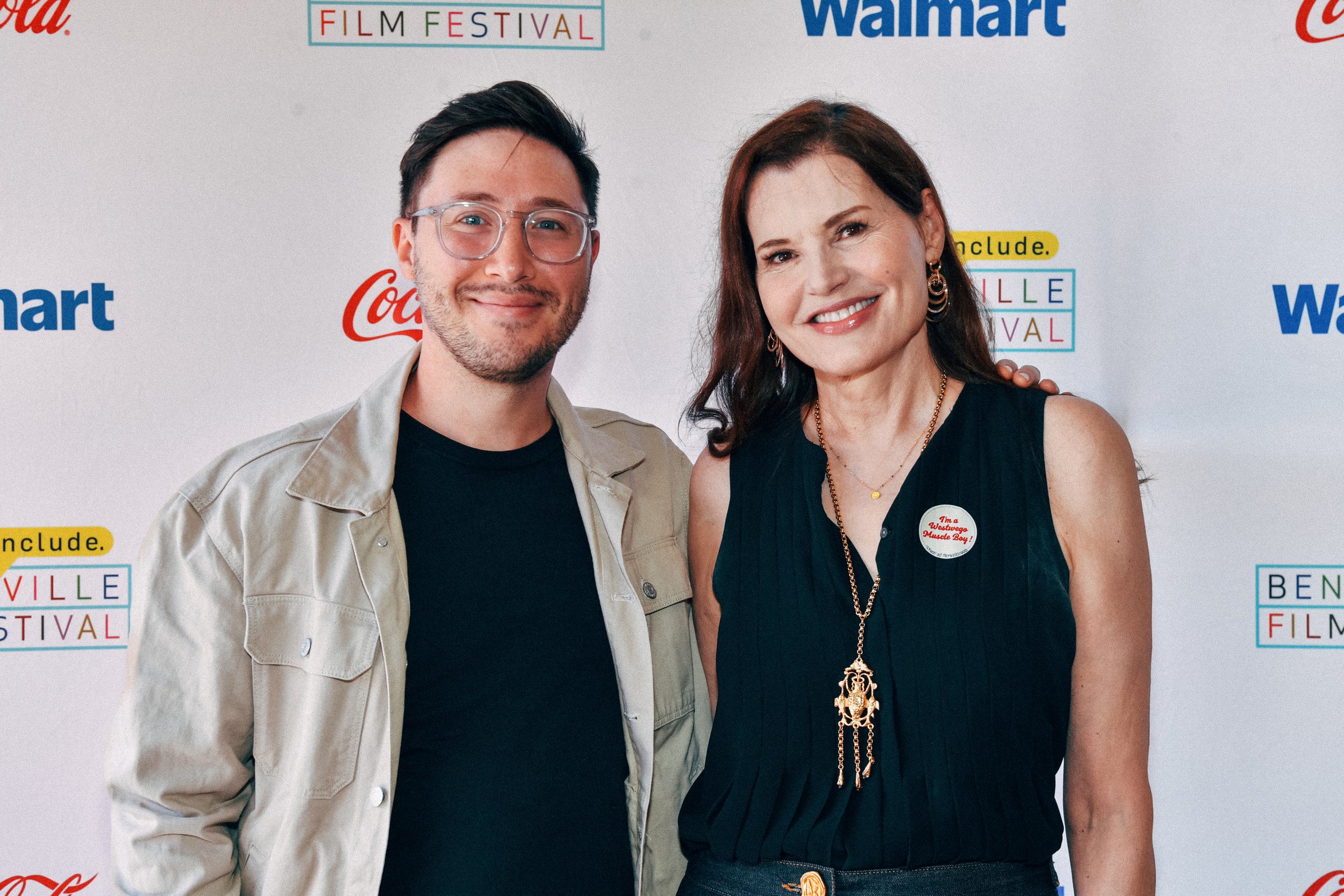
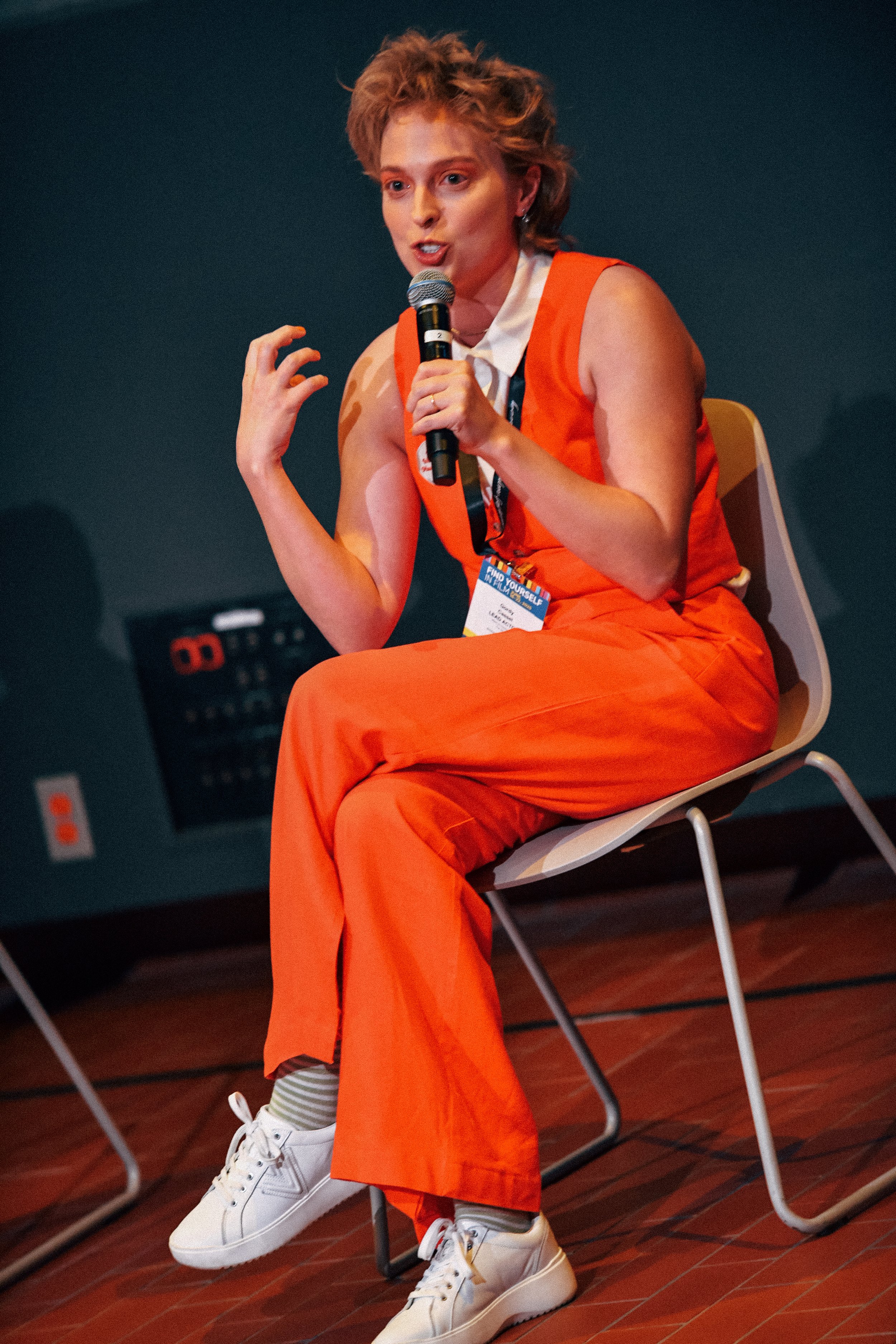


The Director
Jared Cliff LaReau is a filmmaker from the Ozark Mountains of Arkansas, now living and working in New Orleans, Louisiana.
He has directed and edited a range of projects, including commercials, music videos, and short films that reflect his deep commitment to storytelling with depth and sincerity. His work often draws from the rhythms of everyday life, capturing moments of quiet resilience and the distinctive character of his Southern upbringing.
His first feature film, West of Greatness, continues this approach, blending personal, character-driven narratives with broader social themes. The film explores ambition, friendship, and the complex intersections of poverty, mental health, and race, offering a grounded perspective shaped by his experiences growing up in the South.
Through his work, LaReau seeks to honor overlooked people and places with authenticity and care, crafting stories that resonate emotionally while encouraging reflection.
Director’s Statement
West of Greatness is a personal story rooted in the world I grew up in and the people who shaped me.
In Northwest Arkansas, life often felt directionless. We spent our days skateboarding on cracked pavement, rebelling in small, often self-destructive ways, and seeking out trouble to break the monotony. Drugs, cheap beer, violence, and movies formed the backdrop of growing up in a struggling industrial town.
Addiction and poverty were woven into the fabric of daily life where I came from. I was lucky to find a way out—to get clean and sober—but many of the people I grew up with weren’t as fortunate. They are the true inspirations for this film—ordinary people facing extraordinary challenges with quiet strength and resilience, often relying on small illusions to make it through another day.
In the years since getting sober, storytelling has become an urgent calling for me.
Now living in New Orleans, I’ve found a new sense of home on the Westbank, a diverse and resilient community that reminds me of where I come from. It’s here that West of Greatness takes place—a story about two young men, Terry and Jerome, each searching for purpose in a world that offers few opportunities. Bodybuilding, a pursuit that demands complete dedication and self-discipline, becomes their way of finding meaning and self-worth in a difficult environment.
Making this film was a collaborative effort in every sense.
We created a real bodybuilding competition, blending actors with actual participants, and filmed over the course of a year as they trained, transformed, and prepared for the event. This hybrid approach allowed us to capture unscripted moments that deepened the film’s authenticity, blurring the lines between fiction and reality in ways I never anticipated.
But this project was far from a solo endeavor. It was shaped by an extraordinary team of collaborators who gave everything to bring this story to life. Their dedication and creativity transformed the film into something I could never have achieved alone. This experience has only reinforced my belief that the strength to endure and create lies in the power of community.



